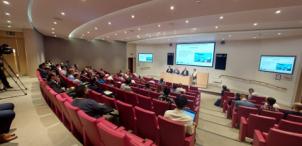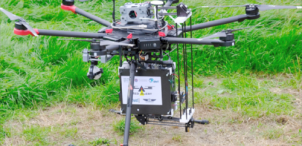The University of Edinburgh and Heriot-Watt University's new Centre for Doctoral Training Programme focuses on generation-after-next technologies for information processing in defence & security, and spans the entire range from hardware development to algorithmic AI development.
The SPADS doctoral programme trains the next generation of highly professional defence scientists, including engineers, computer scientists, and mathematicians, capable of leading developments in cutting-edge and generation-after-next technologies in information and communication technology that are poised to transform not only the world of defence & security, but also the broader civilian society.
This is addressed by underpinning interconnected technology and sensing modalities working across multiple sensing domains, leveraging advances in autonomy, embedded systems, and AI across both software/algorithms and hardware.
A SPADS funded place has the following advantages beyond typical Doctoral Training Programme scholarships that might be appealing to students:
- An enhanced annual stipend of £21,400 tax-free (2024/25);
- A research training and support grant (RTSG) over the 4-year PhD, which is a substantial uplift on most PhD scholarships.
- Funding for access to key facilities, such as the Edinburgh International Data Facility, the National Robotarium, and the Scottish Microelectronics Centre.
- Access to a wide variety of cohort training events, from summer schools to specialised theme meetings, innovation & commercialisation sandpits, and knowledge transfer meetings with Dstl.
- Finally, access to our industry partners and academic network, which will provide numerous opportunities for placements, data access, and career development.
We have a limited number of funded places for international students. If you are an international student, do not require ATAS and are made an offer to study with us on the SPADS CDT then the above funding package would be awarded to you. You would not need to apply separately for funding.









